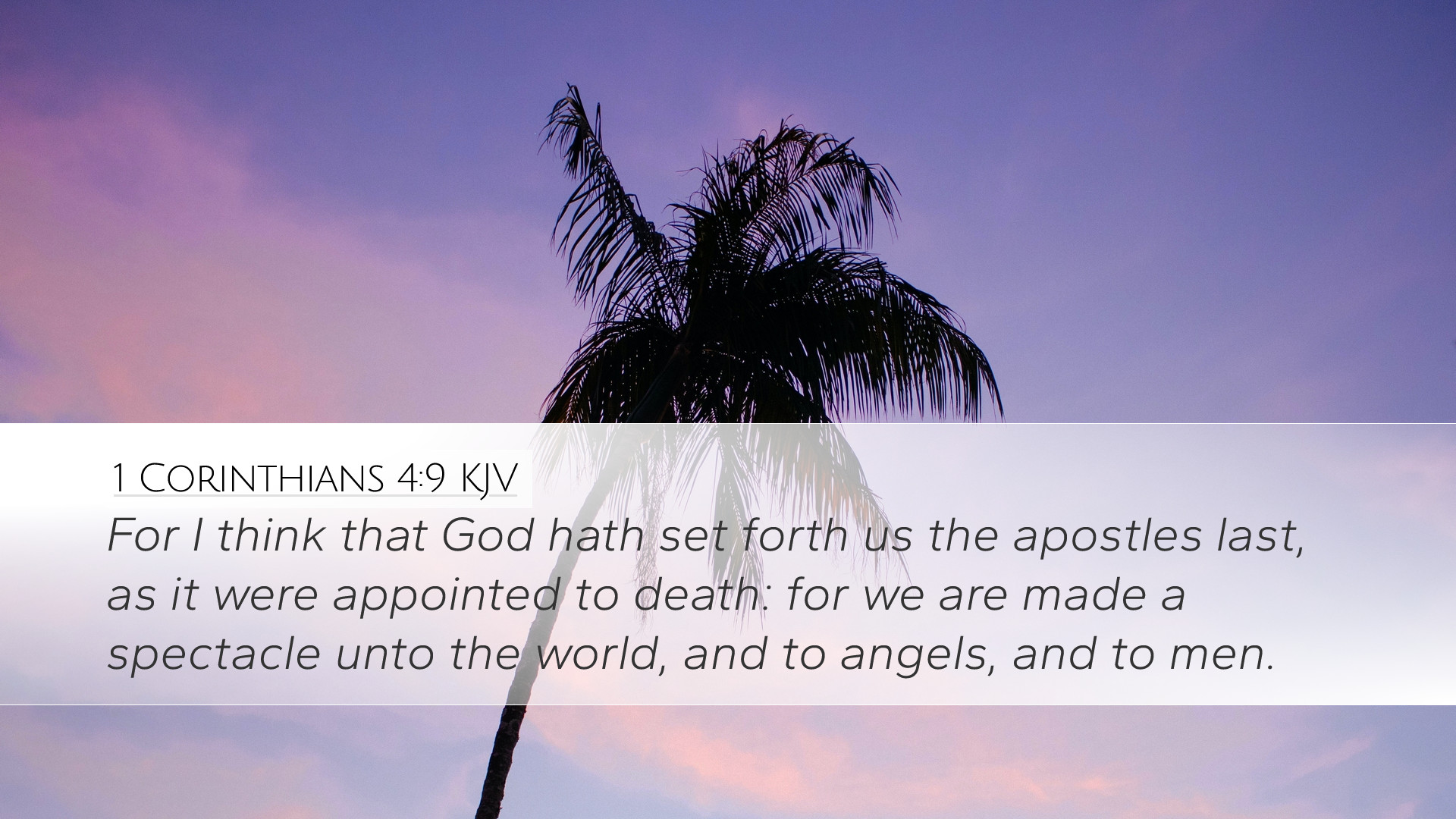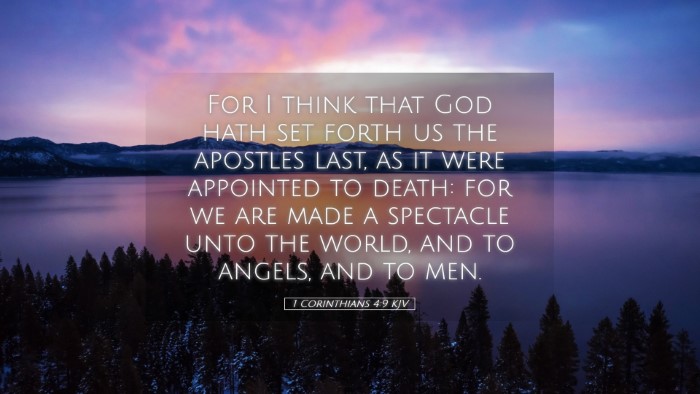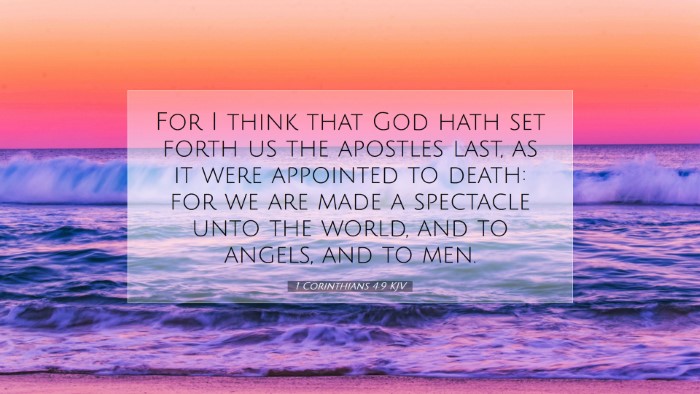Commentary on 1 Corinthians 4:9
Verse Analysis: "For I think that God hath set forth us the apostles last, as it were appointed to death: for we are made a spectacle unto the world, and to angels, and to men."
Overview
In this verse, the Apostle Paul presents a profound insight into the nature of apostolic ministry and the experiences of the apostles. The verse encapsulates the suffering, the public spectacle, and the unique position of the apostles as representatives of Christ. This commentary will explore the implications of the verse through the lenses of various public domain scholars.
Insights from Matthew Henry
Matthew Henry highlights the idea that the apostles, seen as the last in a line of witnesses to Christ, bear the weight of the gospel in an often-hostile world. He describes the apostles 'as if appointed to death,' indicating their role not just as teachers but also as martyrs for the truth of the gospel. This aligns them with Christ, who also faced public humiliation and rejection.
- Representatives of Christ: Henry emphasizes that the apostles represent Christ and bear the brunt of the world's scorn.
- Public Display: The term "spectacle" denotes the visible suffering and struggles faced by the apostles, suggesting that their lives are a demonstration of faith amidst adversity.
Insights from Albert Barnes
Albert Barnes offers a contextual interpretation of the verse, noting that the 'spectacle' refers to a public exhibition, similar to the way criminals might be displayed in arenas. This metaphor illustrates the apostles' trials and how they are 'set forth' publicly for scorn. Barnes’ commentary reflects on the apostolic experience as one that is often misunderstood and misrepresented.
- Last of All: Barnes explains that being 'set last' indicates that the apostles are the final witnesses in God’s revelation through Christ. Their unique position carries a profound responsibility and consequence.
- Angels and Men: The reference to being made a spectacle not only before humans but also angels signifies the cosmic implications of their mission.
Insights from Adam Clarke
Adam Clarke's commentary adds depth to the understanding of the apostolic role and its implications. He interprets the 'spectacle' as not merely a source of ridicule but also a mighty testimony to faith, contrasting the apostles' outward suffering with their inward strength. Clarke suggests that their suffering leads to a greater witness for Christ, serving as encouragement for believers.
- Mighty Testimony: Clarke asserts that the apostles’ experience encourages others in the faith, as they stand firm in their witness despite incredible trials.
- Symbol of Hope: He also emphasizes that this 'spectacle' serves as a sign that God is actively using their struggles for His glory.
Theological Implications
This verse brings forth several theological reflections for pastors and theologians:
- The Cost of Discipleship: The life of an apostle exemplifies the cost associated with following Christ, serving as a reminder of the sacrifices required in true discipleship.
- God’s Sovereignty: The notion that God has ordained the position of the apostles underscores His sovereign plan. The suffering and public display of the apostles are part of God’s broader narrative in salvation history.
- The Witness of Suffering: The verse challenges believers to understand that suffering for the gospel can enhance their testimony and serve as a powerful tool for evangelism.
Conclusion
1 Corinthians 4:9 offers a poignant reminder of the apostolic experience and the broader spiritual implications for all believers. The insights drawn from public domain commentaries illuminate the importance of understanding apostolic suffering in the context of God’s divine plan. As pastors, students, and scholars reflect on this verse, they are encouraged to see suffering not merely as a burden but as a significant aspect of witnessing to the transformative power of Christ.


